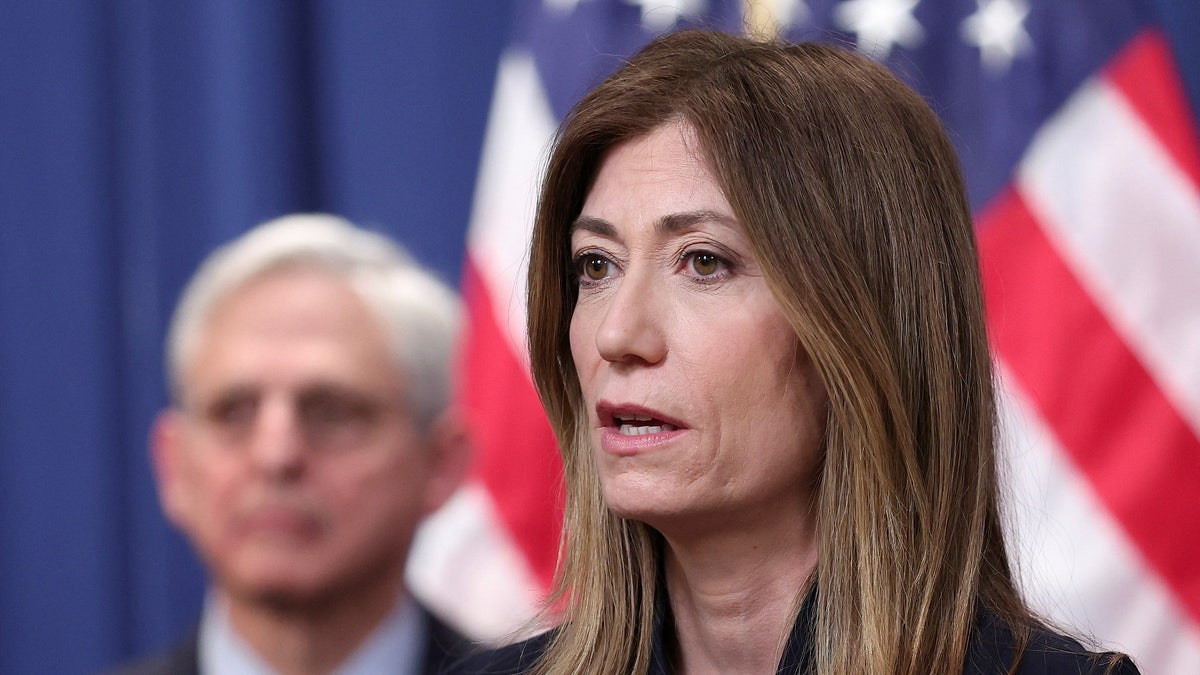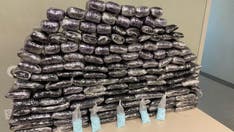Cartels are poisoning Americans at record rates: DEA administrator
DEA Administrator Anne Milgram says the drugs being seized along the border are a 'different and deadlier' threat than ever before.
Mexico needs to do more to help combat the fentanyl crisis that is plaguing America, the head of the U.S. Drug Enforcement Administration told Fox News' Bill Hemmer.
"We know that the vast, vast majority of that is coming from Mexico, and we know that it is being synthesized openly," Anne Milgram, the DEA administrator, said during an appearance Friday on "America’s Newsroom."
"And so Mexico — they know it's happening, we know it's happening and they need to work to stop it."
The fentanyl crisis started almost a decade ago with illegal distribution in North America in 2014, according to a DEA intelligence report. The ecosystem of production and distribution of the drug has grown increasingly complex since that time, with India and China playing a part in the process.
Mexico grabs the headlines with its proximity to the U.S., but China serves a primary role in the fentanyl supply chain. The DEA in 2019 labeled China "the primary source of fentanyl and fentanyl-related substances trafficked through international mail … as well as the main source for all fentanyl-related substances trafficked into the United States."

Anne Milgram, administrator of the Drug Enforcement Administration, speaks during a news conference to announce the extradition and unsealing of an indictment charging former Honduran President Juan Orlando Hernandez with participating in a cocaine-importation conspiracy and related firearms offenses in Washington April 21, 2022. (Win McNamee/Pool via Reuters)
"The chemicals are coming from China," Milgram said. "They're then made in Mexico, and they're made openly throughout the country, and — just to sort of put a fine point on this — last year, we seized 20 million fake pills and 15,000 pounds of fentanyl."
"That's 440 million potential lethal doses of fentanyl that we've already seized last year," she added. "This year, to date, we’ve already seized more than 20 million fake pills."
This increasingly diverse and international fentanyl ecosystem makes the problem of tackling the crisis that much more difficult. The U.S. has to rely on cooperation with those other nations, which has led to mixed results.
Beijing worked to ban 175 chemicals related to the production of synthetic drugs, 26 of which were fentanyl-related and several which were "precursor agents," according to a 2020 Brookings report. But cooperation between Chinese and Mexican law enforcement — and with the U.S. — remains minimal.
SENATE GOP DOCTORS CAUCUS RELEASES PSA ON FENTANYL DANGER
Milgram discussed two major Mexican drug cartels responsible for the bulk of fentanyl distribution into the U.S.: Sinaloa and Jalisco New Generation Cartel (CJNG), which she said have poisoned Americans at "record rates."
"We lost 107,622 Americans last year," she explained. These two cartels are primarily responsible for the fentanyl and the methamphetamine that is flooding into the United States and is killing people."
"These two cartels essentially are working from China, where they're purchasing these chemicals that they're using now to make into fentanyl and methamphetamine," she continued. "These are not plant-based drugs anymore. It is a different and deadlier drug threat than we have ever seen in our country."
The international nature of the issue makes it difficult for U.S. authorities to tackle without help from foreign allies. Derek Maltz, a retired director of DEA Special Operations Division, told Fox News Digital that education remains the best tool the agency has to combat the crisis on the home front.
MEXICO SEIZES ‘HISTORIC’ CACHE OF FENTANYL WORTH HUNDREDS OF MILLIONS; ARRESTS MADE
"Education is critical, but more importantly is we're following a lot of money toward opioid addiction, and the White House has come out with new strategies to provide a lot of resources to opioid addiction, which is great because we need to treat people that are addicted," Maltz explained.
"We need to get mental illness services to people that are addicted. We need to help rehabilitate people that are addicted to opioids," he added. "However, you're never going to treat or educate a kid that's 13 years old in the morgue. It's too late. So we have to have more of a sense of urgency."
Milgram reiterated the value of educating the public and equipping parents to discuss the issue with their children, particularly as fentanyl is a "shapeshifter" that can appear "in any drug."
CLICK HERE TO GET THE FOX NEWS APP
"[The cartels] are intentionally trying to trick [your children] into buying something that they believe is an OxyContin, is a Percocet, and it's not," she said. "It's fentanyl, and one pill can kill, one use can kill. And we see this every single day."










































